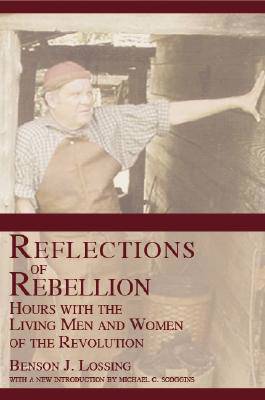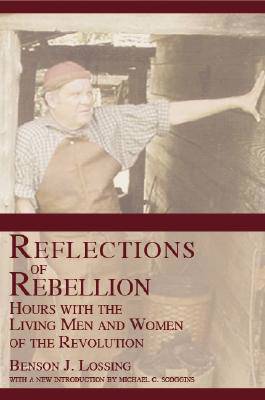
- Retrait gratuit dans votre magasin Club
- 7.000.000 titres dans notre catalogue
- Payer en toute sécurité
- Toujours un magasin près de chez vous
- Retrait gratuit dans votre magasin Club
- 7.000.0000 titres dans notre catalogue
- Payer en toute sécurité
- Toujours un magasin près de chez vous
Reflections of Rebellion
Hours with the Living Men and Women of the Revolution
Benson J Lossing
Livre broché | Anglais
30,95 €
+ 61 points
Description
On a pleasant morning in June of 1848, writer and historian Benson J. Lossing was traveling by carriage between the towns of Greenwich and Stamford, Connecticut. Along the path, Lossing happened upon an elderly veteran of the Revolutionary War. Although quite old, the man was thoughtful and pleasant, and he spent the afternoon regaling Lossing with tales of his experiences in the war. The veteran turned out to be General Ebenezer Mead, a former soldier of both the Connecticut militia and the Continental army. For Lossing, the experience was profound. He realized at once that very few men and women who had lived through the days of the Revolution were still alive, and that soon, if he did not act, their stirring stories would be lost. His mind was made up, his mission clear: I felt an irrepressible desire to seek and find such mementos of the great conflict for freedom and independence, wherever they might exist, and to snatch their lineaments from the grasp of Decay before it should be too late. Before reaching Stamford, Lossing commenced drawing plans for an epic pilgrimage across the United States to seek out and interview these few surviving Americans who had born witness to the start of our great nation. These are the fruits of his labor. First published in 1889, this intriguing volume preserves for the ages the stories of a wide variety of Americans who lived through these tumultuous times. Included is the story of Rebecca Motte, a heroine from South Carolina who helped Francis Marion's soldiers set her own house ablaze to drive out British troops. Also present is the account of Uzal Knapp, the last remaining veteran of General George Washington's Life Guards. Lossing goes to great lengths to capture the tales of Americans from many walks of life, including that of Eleanor, one of Washington's many slaves, and Frances Slocum, who was abducted and raised by a tribe of Delaware Indians. This fascinating collection, with a new, insightful introduction by Michael C. Scoggins, is a triumph of preservation and a treasure for history-conscious
Spécifications
Parties prenantes
- Auteur(s) :
- Editeur:
Contenu
- Nombre de pages :
- 160
- Langue:
- Anglais
Caractéristiques
- EAN:
- 9781596290303
- Date de parution :
- 06-01-05
- Format:
- Livre broché
- Format numérique:
- Trade paperback (VS)
- Dimensions :
- 160 mm x 236 mm
- Poids :
- 299 g

Les avis
Nous publions uniquement les avis qui respectent les conditions requises. Consultez nos conditions pour les avis.






